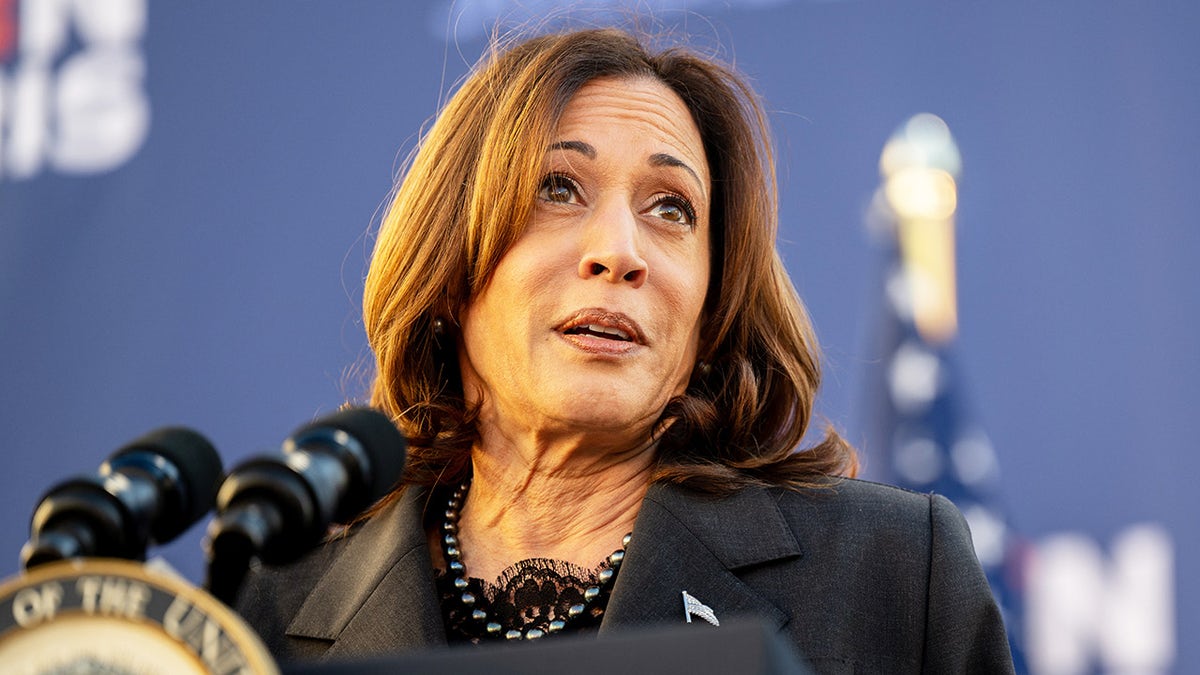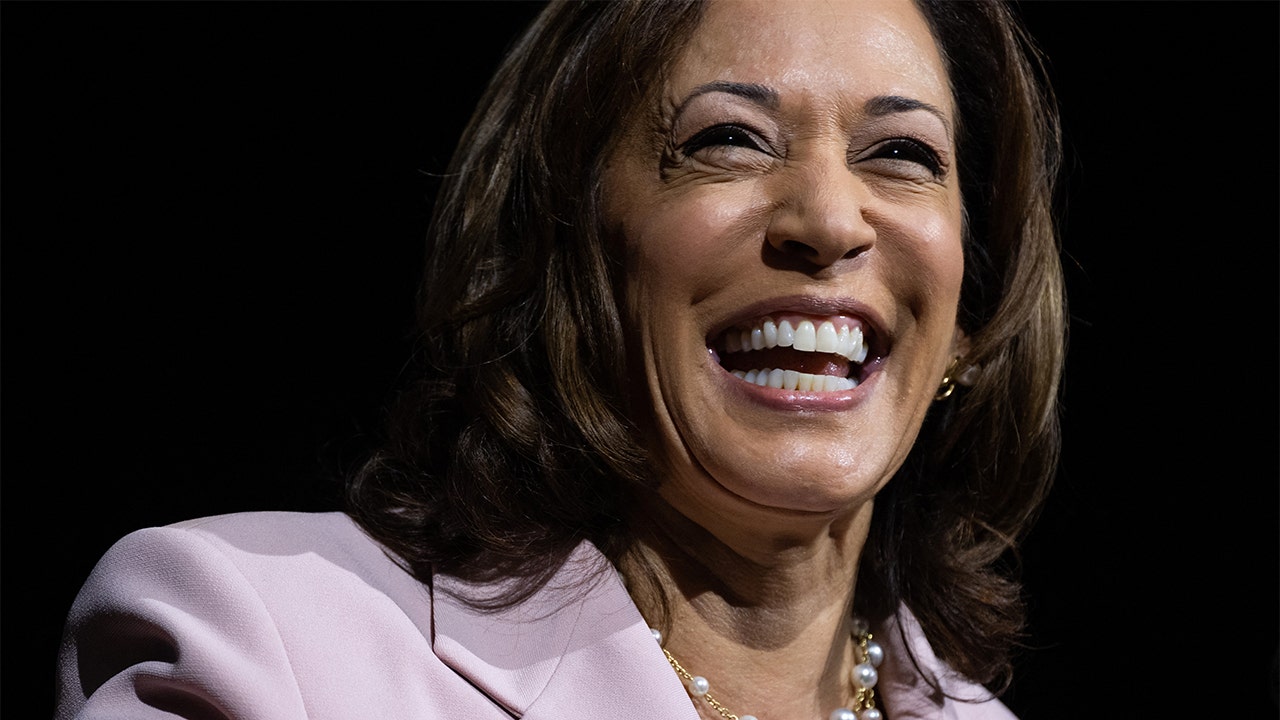What's Kamala Harris's stance on alcohol?
Kamala Harris has a mixed record on alcohol-related issues. As a senator, she co-sponsored legislation to increase funding for addiction treatment and prevention programs. She also voted against a bill that would have made it easier for people to get access to alcohol. However, Harris has also expressed support for the alcohol industry, and she has accepted campaign contributions from alcohol companies.
Harris's position on alcohol is likely to be influenced by a number of factors, including her personal experiences, her political beliefs, and the views of her constituents. Harris has said that she believes that alcohol should be legal, but that it should be consumed responsibly. She has also said that she supports efforts to reduce underage drinking and drunk driving.
| Name | Occupation | Years Active |
|---|---|---|
| Kamala Harris | Politician | 2003-Present |
Kamala Harris and Alcohol
Introduction
Kamala Harris's stance on alcohol is a complex one that has evolved over time. As a senator, she has co-sponsored legislation to increase funding for addiction treatment and prevention programs. She has also voted against a bill that would have made it easier for people to get access to alcohol. However, Harris has also expressed support for the alcohol industry, and she has accepted campaign contributions from alcohol companies.
Key Aspects
- Harris's personal experiences with alcohol
- Harris's political beliefs on alcohol regulation
- The views of Harris's constituents on alcohol
Discussion
Harris's personal experiences with alcohol are likely to have shaped her views on the issue. Harris has said that she has seen firsthand the devastating effects of alcohol abuse. She has also said that she believes that alcohol should be legal, but that it should be consumed responsibly.
Harris's political beliefs on alcohol regulation are also likely to have influenced her stance on the issue. Harris is a Democrat, and Democrats are generally more supportive of alcohol regulation than Republicans. Harris has said that she believes that the government has a role to play in reducing alcohol-related harms. She has also said that she supports efforts to increase funding for addiction treatment and prevention programs.
The views of Harris's constituents on alcohol are also likely to have influenced her stance on the issue. Harris represents California, a state with a large and diverse population. Californians have a variety of views on alcohol, and Harris is likely to have taken these views into account when developing her own stance on the issue.
Conclusion
Kamala Harris's stance on alcohol is a complex one that has evolved over time. Her views are likely to have been shaped by her personal experiences, her political beliefs, and the views of her constituents. As a senator, Harris has co-sponsored legislation to increase funding for addiction treatment and prevention programs. She has also voted against a bill that would have made it easier for people to get access to alcohol. However, Harris has also expressed support for the alcohol industry, and she has accepted campaign contributions from alcohol companies.
{point}
Alcohol is a major public health concern. It is the third leading cause of preventable death in the United States, and it is responsible for a variety of health problems, including liver disease, heart disease, and cancer.
Harris has said that she believes that the government has a role to play in reducing alcohol-related harms. She has also said that she supports efforts to increase funding for addiction treatment and prevention programs.
{point}
The alcohol industry is a major economic force in the United States. It generates billions of dollars in revenue each year, and it employs millions of people.
Harris has said that she supports the alcohol industry. She has also said that she believes that the government should not interfere with the free market.
{point}
Alcohol is often associated with crime and violence. It is also a major contributing factor to homelessness and poverty.
Harris has said that she believes that the government has a role to play in addressing the social problems associated with alcohol. She has also said that she supports efforts to reduce underage drinking and drunk driving.
Kamala Harris and Alcohol
Kamala Harris's stance on alcohol is a complex one that has evolved over time. As a senator, she has co-sponsored legislation to increase funding for addiction treatment and prevention programs. She has also voted against a bill that would have made it easier for people to get access to alcohol. However, Harris has also expressed support for the alcohol industry, and she has accepted campaign contributions from alcohol companies.
- Personal experiences: Harris has said that she has seen firsthand the devastating effects of alcohol abuse.
- Political beliefs: Harris is a Democrat, and Democrats are generally more supportive of alcohol regulation than Republicans.
- Constituent views: Harris represents California, a state with a large and diverse population with a variety of views on alcohol.
- Public health: Alcohol is a major public health concern, and Harris has said that she believes that the government has a role to play in reducing alcohol-related harms.
- Social justice: Alcohol is often associated with crime and violence, and Harris has said that she believes that the government has a role to play in addressing the social problems associated with alcohol.
These five key aspects provide a comprehensive overview of Kamala Harris's stance on alcohol. Her views are likely to have been shaped by her personal experiences, her political beliefs, the views of her constituents, and her understanding of the public health and social justice issues related to alcohol.
| Name | Occupation | Years Active |
|---|---|---|
| Kamala Harris | Politician | 2003-Present |
Personal experiences
Kamala Harris's personal experiences with alcohol have likely shaped her views on the issue. She has said that she has seen firsthand the devastating effects of alcohol abuse. This is likely to have given her a deep understanding of the human cost of alcohol misuse.
Harris's personal experiences may also have made her more sympathetic to people who are struggling with alcohol addiction. She may be more likely to support policies that aim to reduce alcohol-related harms and help people to recover from alcohol addiction.
Overall, Harris's personal experiences with alcohol are likely to have had a significant impact on her views on the issue. Her experiences may have made her more supportive of alcohol regulation and more sympathetic to people who are struggling with alcohol addiction.
Political beliefs
Kamala Harris's political beliefs are likely to have influenced her stance on alcohol. Democrats are generally more supportive of alcohol regulation than Republicans. This is likely due to a number of factors, including the Democratic Party's commitment to social justice and public health.
- Public health concerns: Democrats are more likely than Republicans to believe that alcohol is a public health concern. They are therefore more likely to support policies that aim to reduce alcohol-related harms, such as increasing taxes on alcohol and restricting the sale of alcohol to minors.
- Social justice concerns: Democrats are more likely than Republicans to believe that alcohol abuse is a social justice issue. They are therefore more likely to support policies that aim to address the root causes of alcohol abuse, such as poverty and inequality.
- Constituent views: Democrats are more likely to represent constituents who support alcohol regulation. This is because Democrats are more likely to represent urban areas, where there is more support for alcohol regulation.
Overall, Kamala Harris's political beliefs are likely to have led her to adopt a more supportive stance on alcohol regulation. She is likely to believe that alcohol is a public health concern and that the government has a role to play in reducing alcohol-related harms.
Constituent views
As a senator, Kamala Harris represents the state of California, which has a large and diverse population with a variety of views on alcohol. Harris is likely to take these views into account when developing her own stance on alcohol-related issues.
For example, California is home to a large number of people who are concerned about the public health effects of alcohol. These constituents are likely to support Harris's efforts to increase funding for addiction treatment and prevention programs.
California is also home to a large number of people who work in the alcohol industry. These constituents are likely to support Harris's efforts to promote the alcohol industry and reduce government regulation.
Harris is likely to try to balance the competing interests of her constituents when developing her stance on alcohol-related issues. She will need to consider the public health concerns of some of her constituents, as well as the economic interests of others.
Harris's stance on alcohol is likely to be influenced by the views of her constituents. She will need to take their views into account when developing her own stance on alcohol-related issues.
Public health
Alcohol is a major public health concern in the United States. It is the third leading cause of preventable death, and it is responsible for a variety of health problems, including liver disease, heart disease, and cancer. The government has a role to play in reducing alcohol-related harms by increasing funding for addiction treatment and prevention programs, regulating the sale and distribution of alcohol, and educating the public about the dangers of alcohol abuse.
- Reducing alcohol-related deaths: The government can reduce alcohol-related deaths by increasing funding for addiction treatment and prevention programs. These programs can help people to overcome alcohol addiction and reduce their risk of alcohol-related health problems.
- Preventing underage drinking: The government can prevent underage drinking by regulating the sale and distribution of alcohol. This can include measures such as increasing the minimum age for purchasing alcohol, restricting the sale of alcohol to certain times and places, and increasing the penalties for selling alcohol to minors.
- Educating the public about alcohol: The government can educate the public about the dangers of alcohol abuse through public health campaigns and school-based education programs. These programs can help people to understand the risks of alcohol abuse and make informed decisions about their alcohol consumption.
By taking these steps, the government can help to reduce alcohol-related harms and improve the public health.
Social justice
Alcohol is often associated with crime and violence. This is because alcohol can impair judgment and inhibitions, which can lead to aggressive behavior. Alcohol is also a factor in many domestic violence cases. The government has a role to play in addressing the social problems associated with alcohol, such as crime and violence.
One way that the government can address the social problems associated with alcohol is by regulating the sale and distribution of alcohol. This can include measures such as increasing the minimum age for purchasing alcohol, restricting the sale of alcohol to certain times and places, and increasing the penalties for selling alcohol to minors.
The government can also address the social problems associated with alcohol by funding treatment and prevention programs. These programs can help people to overcome alcohol addiction and reduce their risk of alcohol-related problems.
By taking these steps, the government can help to reduce alcohol-related crime and violence and improve the public health.
FAQs on Kamala Harris's Stance on Alcohol
This section provides answers to frequently asked questions about Kamala Harris's stance on alcohol. The questions are designed to address common concerns and misconceptions about her views on alcohol-related issues. The answers are based on Harris's public statements, voting record, and other relevant sources.
Question 1: What is Kamala Harris's overall stance on alcohol?
Kamala Harris believes that alcohol should be legal, but that it should be consumed responsibly. She supports efforts to reduce underage drinking and drunk driving. Harris has also voted in favor of legislation to increase funding for addiction treatment and prevention programs.
Question 2: What are Harris's views on alcohol regulation?
Harris supports reasonable regulation of the alcohol industry. She believes that the government has a role to play in reducing alcohol-related harms. Harris has voted in favor of legislation to increase taxes on alcohol and to restrict the sale of alcohol to minors.
Summary: Kamala Harris's stance on alcohol is complex and nuanced. She believes that alcohol should be legal, but that it should be consumed responsibly. Harris supports efforts to reduce underage drinking and drunk driving. She also supports reasonable regulation of the alcohol industry.
Conclusion
This article has explored Kamala Harris's stance on alcohol. It has examined her personal experiences with alcohol, her political beliefs, the views of her constituents, and her understanding of the public health and social justice issues related to alcohol.
Harris's stance on alcohol is complex and nuanced. She believes that alcohol should be legal, but that it should be consumed responsibly. She supports efforts to reduce underage drinking and drunk driving. She also supports reasonable regulation of the alcohol industry.
As a senator, Harris has co-sponsored legislation to increase funding for addiction treatment and prevention programs. She has also voted against a bill that would have made it easier for people to get access to alcohol. Harris's stance on alcohol is likely to continue to evolve as she gains more experience and learns more about the issue.


